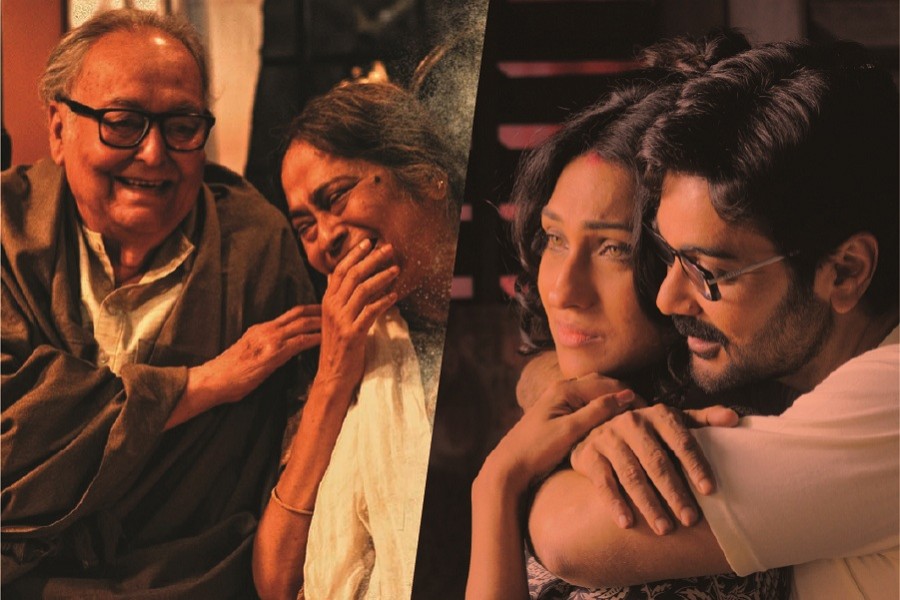"Have we ever been in love or it is just a habit?" is a question posed by Biswanath Majumdar (Soumitra Chatterjee) to his wife Aarati (Swatilekha Sengupta) in popular Indian Bangla film Belaseshe. The question unearths some uncomfortable realities about their conjugal life. After spending fifty years under the same roof, he suddenly comes to realise there is no love between them and so he wants to get away from the relationship in the form of divorce.
Marrying someone is much easier nowadays than keeping up the conjugal life. The number of divorces is ever-increasing in Bangladesh. According to Bangladesh Bureau of Statistics (BBS) data, on average one divorce application is filed every hour in Dhaka city.
One may question, why do divorces take place so frequently? Where have we gone wrong? Or, is it just a generation thing? How could our previous generation couples stay together peacefully for 50 years or more? Why can’t the couples of this generation continue their relationship even for a decade?
This piece will try to find out answers of the above questions analysing two Indian Bangla films – Belaseshe (2015) and Praktan (2016).
Both of the films have several things in common – marriage and what may lead to its end. Shiboprosad Mukherjee and Nandita Roy co-directed both the films.
Praktan revolves around Sudipa (Rituparna Sengupta) who on a train journey meets a well-natured but slightly boisterous Molly (Aparajita Auddy). After befriending her, she soon realises that Molly is the second wife of her ex-husband Ujaan (Prosenjit Chatterjee). As the train moves forward, the film tells the tale of Sudipa and Ujaan's past and how things come about as they are.
We get to know how Sudipa, a driven conservation architect meets an idealistic tour guide Ujaan and how they fall in love. After their marriage, she leaves her lucrative job to live with Ujaan in Kolkata. As Sudipa's free spirit is a stark contrast to her conservative, patriarchal in-laws, she is ostracised from the family.
In an attempt to fit in, Sudipa follows the customs and it ends up in a tragic scene: miscarriage. What is more concerning is Ujaan's behaviour. The fact that Sudipa earns more than Ujaan and is more educated somehow makes him feel 'emasculated' and belittle her.
In a scene where Sudipa buys tickets for a holiday, Ujaan disregards it as 'showing off her money', exposing the bitterness in their marriage life which they started out of love between them. Later on, in a conversation with Molly, Sudipa learns that Ujaan is now a much-changed man.
However, Molly is everything Sudipa was not. She is an obedient housewife, conforming to whatever her in-laws say. This begs the question if Ujaan has ever changed or not.
Meanwhile, Belaseshe features an elderly couple who have lived under the same roof for around 50 years. However one fine day, during the celebration of the Durga Puja, Bishwanath announces that he will divorce his wife astonishing his grown-up children, their spouses, and grandchildren.
Needless to say, chaos ensues as his children vehemently oppose his decision. One daughter calls him selfish as his son begs him to tell him his reasons. How the family deals with the newfound crisis take the rest of the story.
As the elderly couple gears up to separate, they revisit their past, trying to understand where they have gone wrong. In the process, they begin to learn new things about each other after almost five decades. The husband learns how his wife took the lead of the house, her likes, and dislikes, how she always watched his back. The wife learns how her husband fell in love with her time and time again and how dejected he felt after she had begun tending to their children and grandchildren, leaving no time for him.
Meanwhile, the younger generation begins to re-evaluate the value of marriage at the cost of their parents’ separation. The film explores what it means to be married – the companionship and the togetherness. But does love, the focal point of marriage, get lost in the tides of time?
Sudipa and Ujaan, and Bishwajit and Aarti - the two couples are generations apart; yet they both raise a question. What does it mean to be in love, a lasting married life?
Despite harbouring traditional views, Bishwajit had respect for homemaker Aarti, something Ujaan did not show for Sudipa. By watching these two films, one can realise the value of communication even more. How it is important to learn about your partner, to be empathetic towards her, to respect her, and to understand her.
One cannot love another without respect. This is why marriages fall apart so much nowadays. Sudipa was abused by her in-laws and husband, and she chose not to tolerate it. It is another reason why the rate of divorces is getting higher.
Marriage is not just about staying under the same roof; it is about love, respect, and understanding. It is something that shapes you into a better person. This thing, I think, is the secret to a lasting marriage.
To the readers, let me ask you when was the last time you complimented your partner? When was the last time you touched his/her hands and spent a 'we' time? What did you talk about while you, the two, were at the dinner table?
Tiasha Idrak is a student at Dhaka University.


